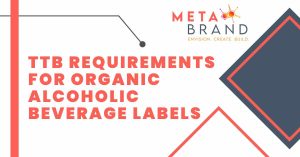Partnering with a small beverage batch co-packer has many perks, including lower production costs, access to specialized machinery and processes, and the ability to scale faster than traditional in-house production.
Navigating the hurdles of the beverage formulation and packaging process without professional guidance can be daunting and time-consuming. The numerous rules and regulations, certifications, and the need for accurate data collection may feel overwhelming. You may neglect core objectives like branding, marketing, and sales, leaving you stuck in a rut.
Engaging a co-packer at the right time can help you avoid costly and time-consuming mistakes, streamline operations, and gain a competitive edge. You, however, need to be aware of common pitfalls when engaging a co-packer, what to expect, and how to benefit from your partnership.
What Is a Small Batch Co-Packer, and How Can They Help?
Beverage manufacturing is a multi-step process that includes everything from raw material sourcing and ingredient formulation to bottling and packaging. A small-batch co-packer is an external production partner specializing in helping businesses source, formulate, package, and distribute their beverage products.
They have the expertise, experience, and facilities to provide efficient, economical production solutions for small-batch beverage businesses. Their responsibilities vary based on the needs of your business but generally include:
-
Raw material sourcing, formulation, and blending:
The success of your soda, beer, wine, kombucha, or energy drink depends on the quality and consistency of the ingredients used. A good co-packer will give you access to the best raw materials, accurately formulate your concoction, and blend it to perfection.
-
Beverage Trial run assistance:
You must run a trial batch before full-scale production. This helps you assess the product’s flavor profile, aroma, and texture, test its shelf life and gauge customer sentiment. A co-packer will guide you through the trial run process, troubleshoot any issues that may arise, and make product development suggestions.
-
Bottling, labeling, and packaging:
Your beverage’s packaging is its visual identity. It’s what draws in the consumer, communicates product features and benefits, and creates a memorable brand experience. A good co-packer will help you design eye-catching labels and packaging, ensure compliance with industry regulations, select the right packaging materials, and manage production.
-
Fulfillment and distribution:
A minor distribution blunder can cost you your entire product development and manufacturing investment. A reliable co-packer will help you efficiently distribute your products, store them in climate-controlled facilities, and ensure timely delivery to retail outlets, customers, and distributors.
-
Beverage Inventory management:
Keeping track of inventory, especially when new orders come in, can be a nightmare. A co-packer will provide real-time inventory updates, manage stock levels, and help you make informed decisions when replenishing supplies.
The expertise, resources, and capabilities of a small batch co-parker will significantly reduce your production costs, boost efficiency, and help you get your products to market faster. Their invaluable assistance can mean the difference between success and failure and help you build a thriving beverage business.
The Perks of Long-term Partnerships with a Co-Packer
Engaging in a long-term relationship with a co-packer brings a multitude of benefits that can elevate your business. Here’s why forming these enduring partnerships is a strategic move:
Tailored Solutions for Unique Needs
Working closely with a co-packer over time allows them to deeply understand the nuances of your brand and products. With familiarity comes the ability to tailor solutions that precisely meet your needs. Whether it’s adjusting the formulation of a dry-mix product or perfecting packaging techniques, a seasoned co-packer can seamlessly adapt to help your product stand out.
Reliable Consistency
Consistency is key in brand perception. A long-term co-packing relationship ensures that production processes are standardized, maintaining uniformity in quality and delivery. This reliability builds trust with your customers as they come to expect the same excellent experience with every purchase.
Innovative Growth Partners
With a vested interest in your success, co-packers often become invaluable partners in innovation. They are well-positioned to offer insights into market trends, recommend improvements, and suggest new technologies or methodologies. Their experience and perspective can drive innovation that keeps your brand ahead of the competition.
Streamlined Communication
Building a strong partnership fosters open, efficient communication channels. You can expect clear, honest dialogue at every stage—whether it’s about scaling up production, adjusting timelines, or navigating supply chain challenges. This transparency ensures that your co-packer is aligned with your company’s goals.
Cost Efficiency
Long-term collaborations often lead to cost savings. Your co-packer can optimize processes over time, reducing waste and minimizing expenses. Additionally, established relationships might open doors to favorable pricing structures, helping you manage your budget more effectively.
Strategic Alliance for Long-Term Success
Finally, a dedicated co-packer is more than just a service provider; they’re a key ally in your business journey. Together, you work towards mutual growth, understanding both your goals and your customers’ requirements. This strategic alliance becomes integral to your brand’s prosperity and longevity.
Forming and nurturing a long-term relationship with a co-packer can be a cornerstone of strategic growth, offering benefits that extend well beyond the basics of production.
Common Pitfalls When Working with a Small Batch Co-Packer
Understanding common pitfalls before working with a small batch co-packer near me can help you avoid costly delays, unwelcome surprises, and nasty legal disputes. Avoid these common mistakes:
Choosing the Wrong Partner
The hype surrounding a co-packer’s credentials or status in the industry may cloud your judgment, so you need to do your due diligence and ensure they offer all the services you require, have adequate resources, and are willing to customize their solutions as per your needs.
It helps to visit the facility, speak to their staff, and get a firsthand understanding of their processes in addition to checking their portfolio and references.
Poor Communication
Clear communication is vital to a successful partnership. Clearly define your expectations and goals, provide detailed product specs, discuss turnaround times, and provide timely feedback. Proactively address any issues as soon as they arise and maintain open communication with the co-packer.
Unrealistic Expectations
Every business has its limitations. Don’t expect the co-packer to set up a production line within 24 hours or deliver a trial batch at the drop of a hat. Understand their capabilities and capacities, adjust your timeline accordingly, and build contingencies for unexpected delays. Set realistic expectations from the outset for a smooth, hassle-free working relationship.
Inadequate Planning
Last-minute changes are a recipe for disaster. Plan for every production phase and specify everything from raw materials to packaging, labeling, and distribution requirements. Provide your co-packer with the necessary resources and information to avoid any bottlenecks during production.
Negotiating Poor Contracts
A contract defines the terms of your agreement and helps you protect your business. It outlines the scope of work, performance expectations, delivery schedules, payment terms, and dispute resolution process.
Skipping this step can have far-reaching implications and negatively affect your business. Hire a skilled lawyer to draw up the contract, review it with your co-packer, and negotiate any clauses that are not in your best interest.
Most beverage entrepreneurs fall prey to these common pitfalls leading to failed partnerships, costly delays, and financial losses. Avoiding them will help you build a successful partnership that maximizes your profits, enhances your reputation, and scales your business for long-term success.
You must also arm yourself with practical tips to ensure a professional, efficient, and profitable working relationship.
7 Practical Tips for a Successful Partnership with a Small Batch Co-Packer
The success of your business hinges on your relationship with the co-packer. A mutual understanding of expectations, an organized workflow, and adequate communication can pave the way for a successful and productive partnership.
1. Do Your Research
Don’t just go for the cheapest or most convenient option. Research, compare, and evaluate multiple co-packers before making a decision.
Consider every factor that affects your business, from their experience and specializations to delivery times and payment terms. Check customer reviews, ask for references, and visit their facilities to meet with their staff, assess their capabilities, and understand their processes.
2. Specify Your Requirements and Clarify Expectations
Futile relationships often arise from mismatched expectations or unclear communication. Provide the co-packer with detailed product specs, turnaround timelines, and packaging requirements.
Discuss your expectations and goals in advance, specify the success metrics, and clearly articulate what you expect from them. Keep the co-packers informed of any changes in the project timeline or scope for a successful collaboration.
3. Establish and Enforce Quality Standards
Quality control is paramount in the food and beverage industry, especially when outsourcing production to co-packers. Set strict quality standards and ensure your co-packer follows them.
Request samples, inspect goods during production, and check for compliance with food safety regulations. Your customers rely on you for safe, great-tasting products, and any mistakes can be disastrous for your business.
4. Have a Contingency Plan
Unforeseen delays and unexpected events can disrupt production, cause supply chain bottlenecks, and increase costs. Unprepared businesses often bear the brunt of these delays leading to financial, reputational, and operational losses.
Consider alternate suppliers, have backup inventory, and plan for contingencies to minimize damage in case of delays or supply chain disruptions.
5. Streamline Supply Chain and Inventory Management Processes
The success of your business depends on efficient supply chain management. Minimize the number of vendors and prioritize those who can provide top-notch quality, quick shipping times, and cost-efficient pricing.
The right supply chain partner will help you reduce costs, adhere to delivery schedules, and meet customer demands. Automating inventory and supply chain management processes can also help you get real-time insights into your production and delivery timelines.
6. Set Communication Protocols
Communication is a two-way channel and is essential to a successful partnership. Establish communication protocols, maintain transparency, provide feedback regularly, and encourage open dialogue.
Set up meeting cadence, review progress notes, and devise strategies to get the most out of your partnership. You can leverage technology and communication tools such as Slack to streamline processes, maintain records, track progress, and stay organized.
7. Embrace Agile Methodologies
Agile methodologies allow you to respond faster to market changes, anticipate customer demands, and use feedback to improve products. Using iterative and incremental development processes will help you quickly identify and address any issues with your production process.
Focus on customer-oriented product design, prioritize value-adding features, and leverage technology for a seamless production process.
Working with a small batch co-packer can be a rewarding experience if you take the right approach. Due diligence, effective communication, and data-driven decision-making are the recipe for a successful partnership. Use these practical tips to get the most out of your small batch co-packing partnership, manage costs, and improve efficiency.
Ready to Scale Your Business with a Professional, Reliable Co-Packer?
Finding a reliable and experienced co-packer who understands your business needs and has the expertise, equipment, and resources to match your production requirements can be challenging.
You need a partner who can deliver quality products, meet deadlines, and provide solutions that best fit your business needs. We at MetaBrand have the experience, resources, and expertise to help you scale your small-batch beverage business.
We are an independent beverage formulation and manufacturing company with the best in-house infrastructure, technology, and processes to help you succeed.
MetaBrand Corp. offers a range of services from formulation and manufacturing to packaging and branding, allowing us to provide comprehensive solutions under one roof. Reach out to us today and take advantage of all we can offer your beverage business.
Co-packing Faq's
A co-packer, short for contract packager, is a third-party company that specializes in the manufacturing and packaging of products on behalf of other companies.
These companies, also known as brand owners or product owners, outsource the production and packaging processes to co-packers to leverage their expertise and resources. The co-packer assumes the responsibility of manufacturing, packaging, and sometimes even distributing the products, allowing the brand owner to focus on other aspects of their business.
Another term commonly used to refer to a co-packer is a contract packager. The two terms, co-packer and contract packager, are often used interchangeably in the industry to describe the same type of third-party company that specializes in manufacturing and packaging products on behalf of other companies.
Key Information:
- Co-packers are also known as contract packagers.
- The terms co-packer and contract packager are used interchangeably.
- Both terms refer to third-party companies that specialize in manufacturing and packaging products for other companies.
Using a co-packer brings several benefits to companies:
- Cost efficiency: Co-packers have specialized equipment and facilities, reducing production costs.
- Expertise and experience: Co-packers offer knowledge, skilled staff, and compliance with regulations.
- Scalability and flexibility: Co-packers can adjust production volumes to meet demand fluctuations.
- Focus on core competencies: Companies can concentrate on strategic aspects of their business.
- Reduced time-to-market: Co-packers streamline production, accelerating product launches.












